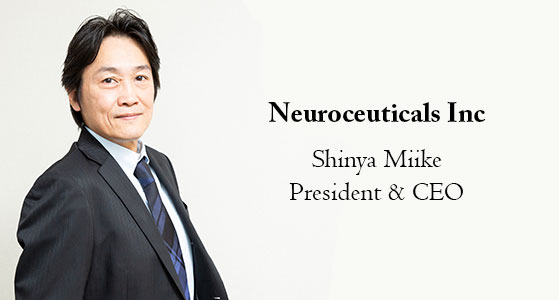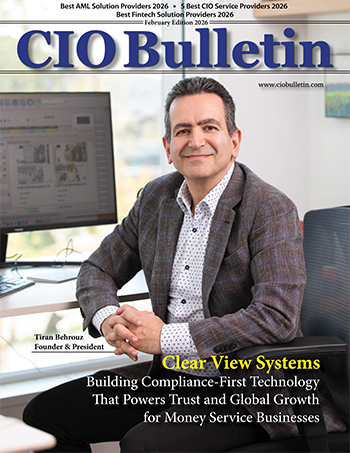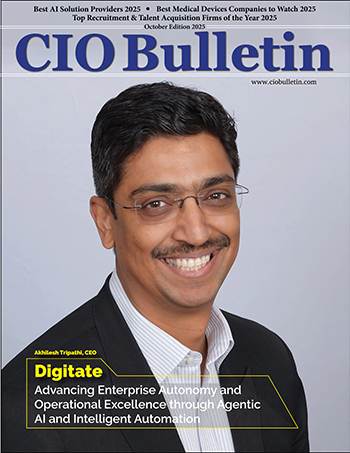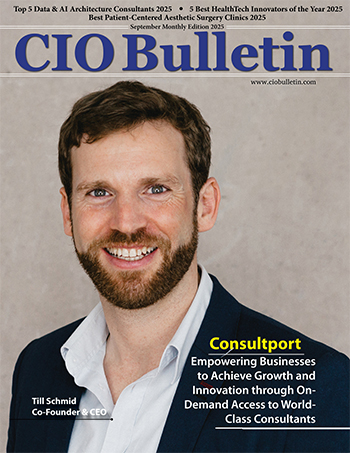CIO Bulletin

Health and medical services have been at the forefront of our consciousness in our current climate. Medical professionals around the country, and the world, have been risking their health to stem the tide and treat the people most affected by the COVID-19 virus. For that alone, they deserve our gratitude and wholehearted appreciation.
As this pandemic grew and the virus spread to different continents, it has become increasingly clear that medical supplies like masks, and medical device needs, like ventilators or testing equipment, are critical.
Successful healthcare delivery depends both on the availability of medical personnel and health technologies. Medical devices are a vital cog in the healthcare delivery system. They equip health service providers with the necessary tools to perform their job of providing quality healthcare effectively.
Continual development and innovation in medical devices are crucial to ensuring the quality of life across the world.
The Medical Device market has grown fast, following technological trends in healthcare to improve people’s welfare. Today, there are an estimated 2 million different kinds of medical devices on the world market, and there are currently more than 10,000 different kinds of medical devices worldwide. The countries of the Americas Region are an important market for medical devices; indeed, in several countries, this sector has witnessed a rapid annual growth rate. With few exceptions, the countries import over 80% of their medical devices. Nevertheless, patient safety and access to high-quality, safe, and effective medical devices remain countries’ top priorities.
Health Authorities face an overwhelming variety of options with regard to increasingly sophisticated, technologically complex, and new medical devices. In addition to having more options, authorities must also consider the technological complexity of the devices; more global and competitive markets; the refusal of single-use devices; increase in the marketing of used and refurbished equipment; donation of devices; patients with greater access to information; ever-increasing use of devices in physician’s offices and at the household level; weak post-sale technical support services; need to establish a post-marketing surveillance program as well as the challenge of delivering good quality services and beneficial treatments as a function of cost-effective medical devices.
Access to good quality, affordable, and appropriate health products is indispensable to advancing universal health coverage, promoting healthier populations, and addressing health emergencies.
Without medical devices, common medical procedures—from bandaging a sprained knee, to diagnosing AIDS/HIV, implanting an artificial eye, or any surgical intervention—would not be possible. Medical devices are used in many diverse settings, for example, by laypersons at home, paramedical staff and clinicians in remote clinics, opticians and dentists, and healthcare professionals in advanced medical facilities, for prevention and screening and in palliative care. Such health technologies are used to diagnose illness, assist disabled people, monitor treatments, and intervene and treat illnesses, both acute and chronic.
Medical devices save lives. The sooner you can get your medical device out to the market, the sooner it can help people.One of the most innovative firms producing innovative, high-quality medical devices is Neuroceuticals Inc.As a medical device manufa- cturer, Neuroceuticals Inc. focuses on product development, application development, and the development of indispensable components to create value. They are doing projects and releasing products that concentrate on those that can perform diagnosis and treatment more efficiently at research institutes, university technology seeds, clinical sites, needs, etc., and those that improve patients’ quality of life.
The following excerpts were taken from a conversation with Shinya Miike, President, and CEO of Neuroceuticals Inc.
Q. What was the motivation behind starting Neuroceuticals Inc?
In a medical device development promotion project recommended by the Japanese government, I met a physician and heard about his idea. It flashed in my mind that this could be an excellent medical device, so I founded the company as a venture business.
Q. What makes Neuroceuticals Inc relevant in today’s times? Could you give us some context?
In recent years, the best way to develop challenging medical devices has been through venture companies. Venture companies launch the most innovative medical devices. It is an excellent way to materialize high-risk ideas. Also, the ability to make quick decisions, which large companies cannot do, is an advantage.
Q. What does innovation mean to you?
It is combining something and creating something that people will use. I think there is a difference between invention and innovation. It is something that people will want to use, something useful to have, something that provides value that has never been seen before, etc.
Q. How are you challenging the status quo at Neuroceuticals Inc?
Our challenge is to develop innovative medical devices and use them in medical institutions. We know that many people cannot enjoy life due to illness. Our challenge is to improve the quality of life of as many people as possible.
Q. Could you tell us about your leadership style?
My style is simple. It is to provide direction and to take all responsibility myself. My excellent staff comes up with excellent designs and does the actual development work the rest of the time.
Q. According to you, what qualities must one possess to be an effective leader or a CEO in today’s world?
As mentioned above, you must take responsibility and make your own decisions. You must believe in yourself and make your dreams a reality. But you must also be careful not to believe too much. If you can give up without giving up, your dream will surely come true. This may sound like a Zen question, but it is true.
Q. As a leader in the technology space, how do you stay on the pulse of the rapidly growing sector? How do you keep up with the developments?
The needs are everywhere. First of all, it is crucial to think about what would be helpful if there were more of this when trying to do something using what is available to you now. Of course, I read technical journals and papers, but I think TRENDS are always in front of me.
Q. How important is it to have a healthy work culture at the workplace? How do you define the work culture at Neuroceuticals Inc?
We try to keep the laughter going in our workplace. That may be strange, but you can’t have good design ideas or efficient work if you can’t enjoy it. We believe that the most important thing is an environment where each person’s individuality is valued and can work in an optimal workplace.
Q. What does the road ahead look like for Neuroceuticals Inc? What are your long-term ambitions?
We will continue to develop innovative medical devices. We do not need to become a big company. We are motivated by the fact that we can help as many patients as possible through the use of our medical devices around the world. In the end, we will look back and be recognized as an excellent company.
Paving the path for peerless innovation in medical devices
Shinya Miike is the President and CEO of Neuroceuticals Inc. During his 25-year experience in the medical device business, especially in medical endoscopes, he was engaged in the development and marketing of new endoscopes, devising strategies and tactics for penetrating them, and establishing new endoscopic surgical techniques.
He is a pioneer in the ultra-thin endoscopic field (under 1mm outer diameter) of ophthalmology, breast surgery, and Cardiology. His first company, FiberTech Co. Ltd, was acquired by a big Japanese Cable company, Fujikura Inc. He then invested Venture company called Silicon Valley Medical Instrument Inc. in San Francisco, which developed IVUS (Intra Vascular Ultra Sound endoscope) and was acquired by ACIST Medical Inc.
In 2004, Shinya won the 1st Prize at the Tokyo Technology Venture Awards. In 2018, He also won AMED President’s Award in the 2nd Japan Medical Research and Development Awards.

Insurance and capital markets







